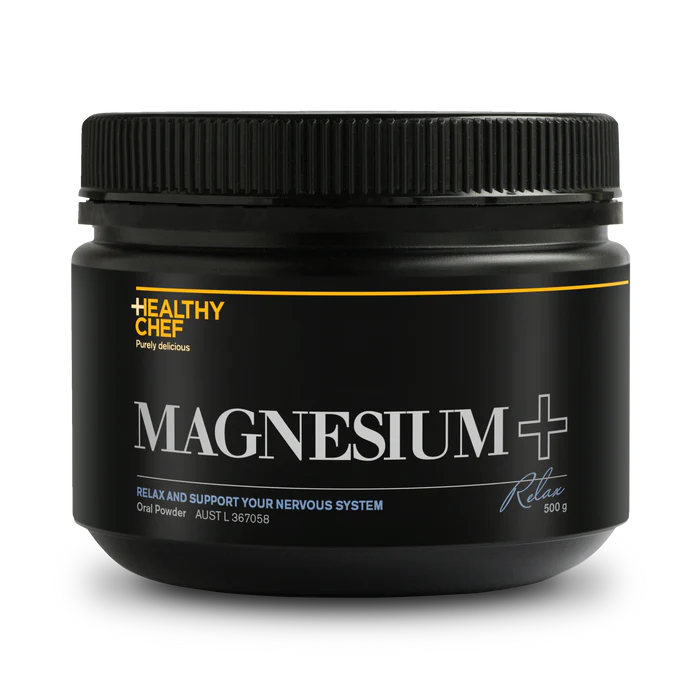Unlocking the Power of Magnesium: Essential Benefits and Optimal Dosage
- Sonja Saar
- Aug 13, 2024
- 3 min read
Updated: Jun 25
Magnesium is a vital mineral that plays a crucial role in numerous bodily functions, yet it’s often overlooked in our daily dietary intake. From muscle function and cognitive health to gut motility, magnesium’s benefits are extensive.
In this post, we’ll explore updated perspectives on the Recommended Dietary Intake (RDI) for magnesium, its key benefits, and the most bioavailable forms of this essential mineral.
Rethinking the Recommended Dietary Intake for Magnesium
Emerging research suggests that the traditional RDI for magnesium might be insufficient for optimal health. Some studies advocate for significantly higher intakes, proposing that adults might benefit from doubling or even tripling the standard recommendations. According to these studies, the updated RDI for magnesium could be:
Men (19-30 years): 800-1200 mg/day
Men (31 years and older): 840-1260 mg/day
Women (19-30 years): 620-930 mg/day
Women (31 years and older): 640-960 mg/day
These revised guidelines aim to ensure that individuals receive an adequate amount of magnesium to support their health and well-being fully. This is largely related to the population being generally heavier now than previous decades. Another factor attributing to increased need is the amount of exercise an individual does. The more active, the greater the requirement for magnesium.
The Benefits of Magnesium
1. Muscle Function
Magnesium is essential for proper muscle function. It plays a key role in muscle contraction and relaxation by regulating calcium and potassium levels in muscle cells. Adequate magnesium intake can help prevent muscle cramps, spasms, and chronic muscle pain. For athletes and active individuals, magnesium is crucial for optimising performance and recovery.
2. Cognitive Function
Magnesium is also vital for brain health. It supports cognitive function by regulating neurotransmitters, which are chemicals that transmit signals in the brain. Research has shown that magnesium can improve memory, learning, and overall cognitive performance. Additionally, magnesium has been linked to reduced symptoms of anxiety and depression, making it an important mineral for mental well-being.
3. Gut Motility
Gut motility, or the movement of the digestive system, is another area where magnesium plays a significant role. Magnesium helps regulate bowel movements by relaxing the muscles in the digestive tract and drawing water into the intestines. This can alleviate constipation and promote regular bowel movements. For those with digestive issues, ensuring adequate magnesium intake can be a simple and effective solution.
Best Forms of Bioavailable Magnesium
Not all magnesium supplements are created equal. The bioavailability, or the degree to which a nutrient is absorbed and utilised by the body, varies among different forms of magnesium. Here are some of the most bioavailable types:
1. Magnesium Glycinate
Magnesium glycinate is highly bioavailable and gentle on the stomach, making it an excellent choice for those with sensitive digestive systems. It’s often recommended for its calming effects and is beneficial for improving sleep and reducing anxiety.
2. Magnesium Citrate
Magnesium citrate is another highly bioavailable form of magnesium. It’s well-absorbed and often used to support digestive health due to its natural laxative effect. This form is particularly effective for alleviating constipation.
3. Magnesium L-Threonate
Magnesium L-threonate is known for its ability to cross the blood-brain barrier, making it especially beneficial for cognitive function. It’s a newer form of magnesium supplement that has shown promise in enhancing memory and learning.
4. Magnesium Malate
Magnesium malate is a good option for those seeking to boost their energy levels. It’s well-absorbed and helps support muscle function and overall energy production.
Conclusion
Magnesium is an essential mineral with a wide range of health benefits, from supporting muscle and cognitive function to promoting gut motility. Ensuring you meet the updated, higher RDI for magnesium can help optimise your overall health.
When choosing a magnesium supplement, consider highly bioavailable forms such as magnesium glycinate, citrate, L-threonate, and malate to maximise absorption and effectiveness. It's also often useful to look for a product that combines Zinc, Magnesium and some Vitamin C - this combo enhances the absorption and effectiveness of each mineral. Our two favorite brands are the ZMA from True Protein and the Magnesium + Blend from The healthy Chef. The Magnesium + blend actually continues a few forms of magnesium, giving it some good potency and effectiveness rather than just having one form!
My tip - just start taking some magnesium - if you struggle with sleep and anxiety related issues try taking this about an hour before bed! It's been closely linked to better sleep patterns! If this isn't an issue then often post training in your shake is a good option too!
At You Physio & Health, we’re dedicated to helping you achieve your health and wellness goals through evidence-based guidance and high-quality supplements. Contact us for personalised advice on incorporating magnesium into your daily routine.
Our final instalment in this mini series on supplements will be all about Greens Powders!









Comments